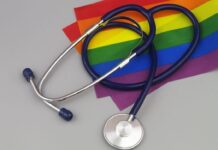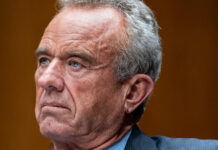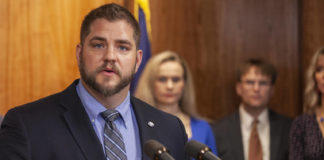
Dr. Hans Henri P. Kluge, the Regional Director of Europe for the World Health Organization (WHO) is warning that confirmed cases of monkeypox, which is most often seen in West and Central Africa, has escalated in Europe and elsewhere globally.
The United Kingdom, Spain, Portugal, Germany, Belgium, France, the Netherlands, Italy and Sweden – as well as the U.S., Canada and Australia are all reporting cases.
“The situation is evolving and WHO expects there will be more cases of monkeypox identified as surveillance expands in non-endemic countries,” Kluge said.
In Britain, the UK Health Security Agency’s Chief Medical Adviser Dr. Susan Hopkins noted in a statement released this past weekend:
“We anticipated that further cases would be detected through our active case finding with NHS services and heightened vigilance among healthcare professionals. We expect this increase to continue in the coming days and for more cases to be identified in the wider community. Alongside this we are receiving reports of further cases being identified in other countries globally.
Because the virus spreads through close contact, we are urging everyone to be aware of any unusual rashes or lesions and to contact National Health Service or a sexual health service if they have any concerns. Please contact clinics ahead of your visit and avoid close contact with others until you have been seen by a clinician.
A notable proportion of recent cases in the UK and Europe have been found in gay and bisexual men so we are particularly encouraging them to be alert to the symptoms and seek help if concerned.
Clinicians should be alert to any individual presenting with unusual rashes without a clear alternative diagnosis and should contact specialist services for advice,” she added.
Monkeypox, which can be transmitted by droplets and by close contact with infected skin lesions or contaminated materials, usually incubates in people for 6 to 13 days before symptoms appear.
UKHSA notes that this rare virus, in the same family as smallpox, has not previously been described as a sexually transmitted infection, but it it can be passed on through very close human contact, such as touching blood or body fluids or prolonged exposure to the respiratory droplets of an infected person. It can also been transmitted with clothing or linens used by an infected person.
In Washington D.C., Dr. Ashish Jha, the White House Covid-19 response coordinator, told ABC he wouldn’t be surprised if the US saw “a few more” cases of monkeypox in the coming days.
“But I feel like this is a virus we understand, we have vaccines against it, we have treatments against it, and it’s spread very differently than SARS-CoV-2” — the virus that causes Covid-19, Jha told ABC’s Martha Raddatz on Sunday.
Traveling in Asia, President Joe Biden told CNN’s Kaitlan Collins as he was preparing board Air Force One to depart South Korea on Sunday; “They haven’t told me the level of exposure yet, but it is something that everybody should be concerned about,” he said.
“We’re working on it hard to figure out what we do and what vaccine, if any, might be available for it. It is a concern in that if it were to spread it would be consequential. That’s all they told me,” the president added.
CNN reported that the US Centers for Disease Control and Prevention is evaluating whether a smallpox vaccine should be offered to health care workers treating monkeypox patients and other people who may be at “high risk” for exposure to monkeypox.
UK Health Security Agency’s Hopkins cautions that people should be aware of monkeypox — but that the risk to the general population “remains extremely low at the moment.”
“I think people need to be alert to it,” said Hopkins. “We really want clinicians to be alert to it and send the test if they’re concerned.”
Hopkins also said based on reports from Africa, the UKHSA knows certain people are “much more at risk of severe disease, particularly immunosuppressed individuals or young children.
“While there is “no direct vaccine for monkeypox,” she said, “we are using a form of smallpox vaccine or third-generation smallpox vaccine that’s safe on individuals who are contacts of cases.”
Symptoms
Initial symptoms of monkeypox include fever, headache, muscle aches, backache, swollen lymph nodes, chills and exhaustion. A rash can develop, often beginning on the face, then spreading to other parts of the body including the genitals.
The rash changes and goes through different stages, and can look like chickenpox or syphilis, before finally forming a scab, which later falls off.
“A feature that distinguishes infection with monkeypox from that of smallpox is the development of swollen lymph nodes,” the CDC said.
Biden Comments On Monkeypox As He Leaves South Korea:








